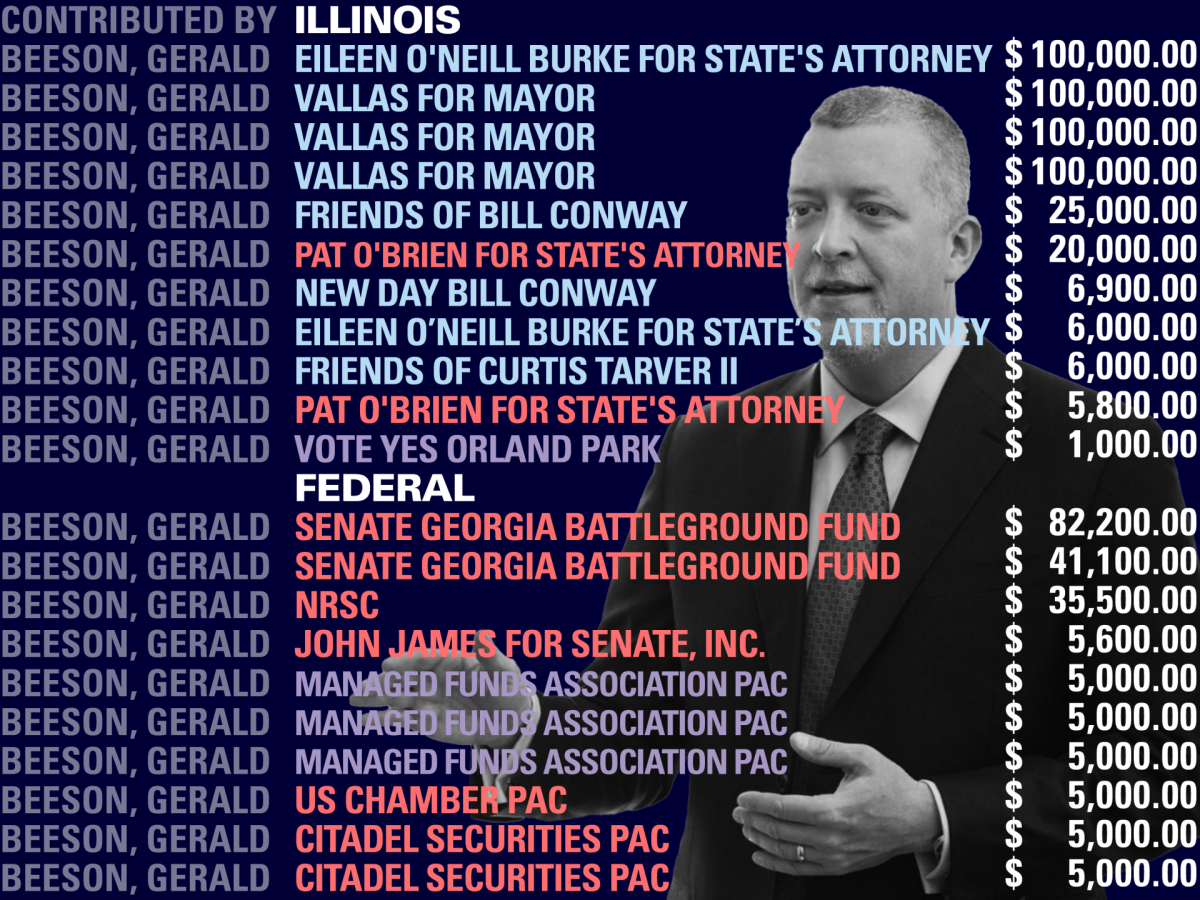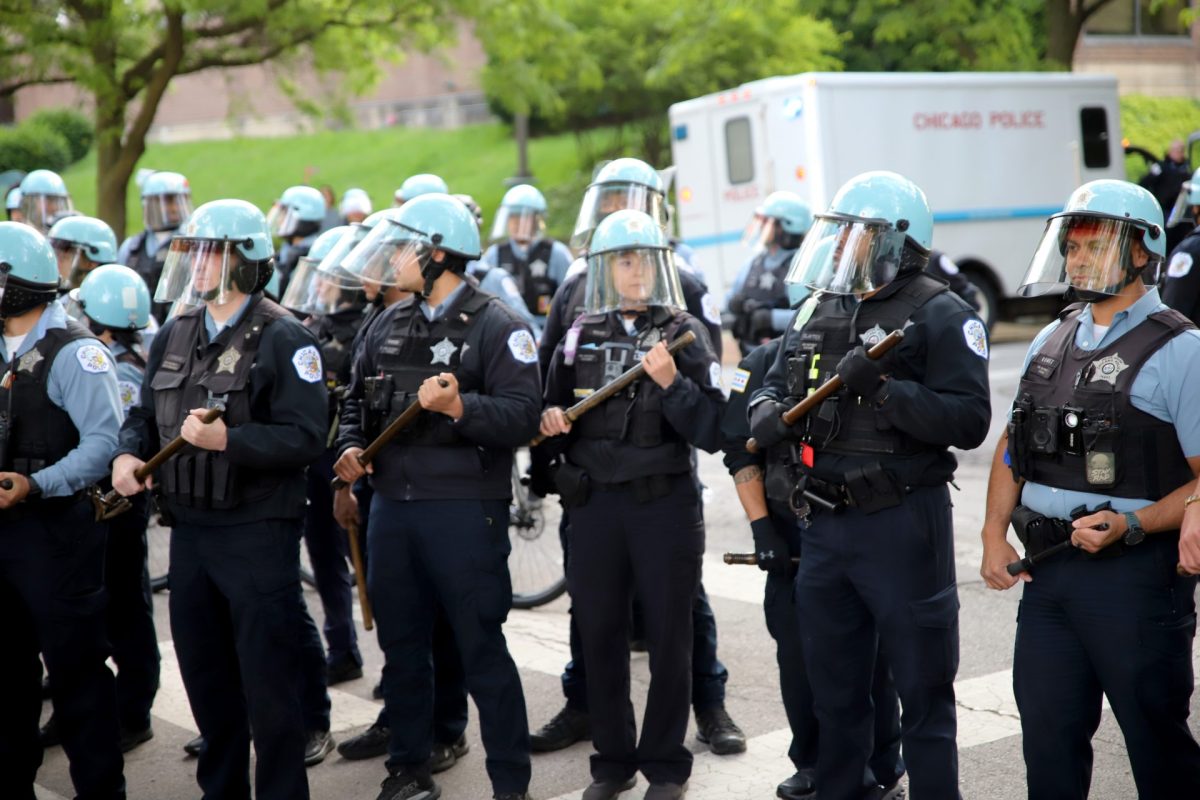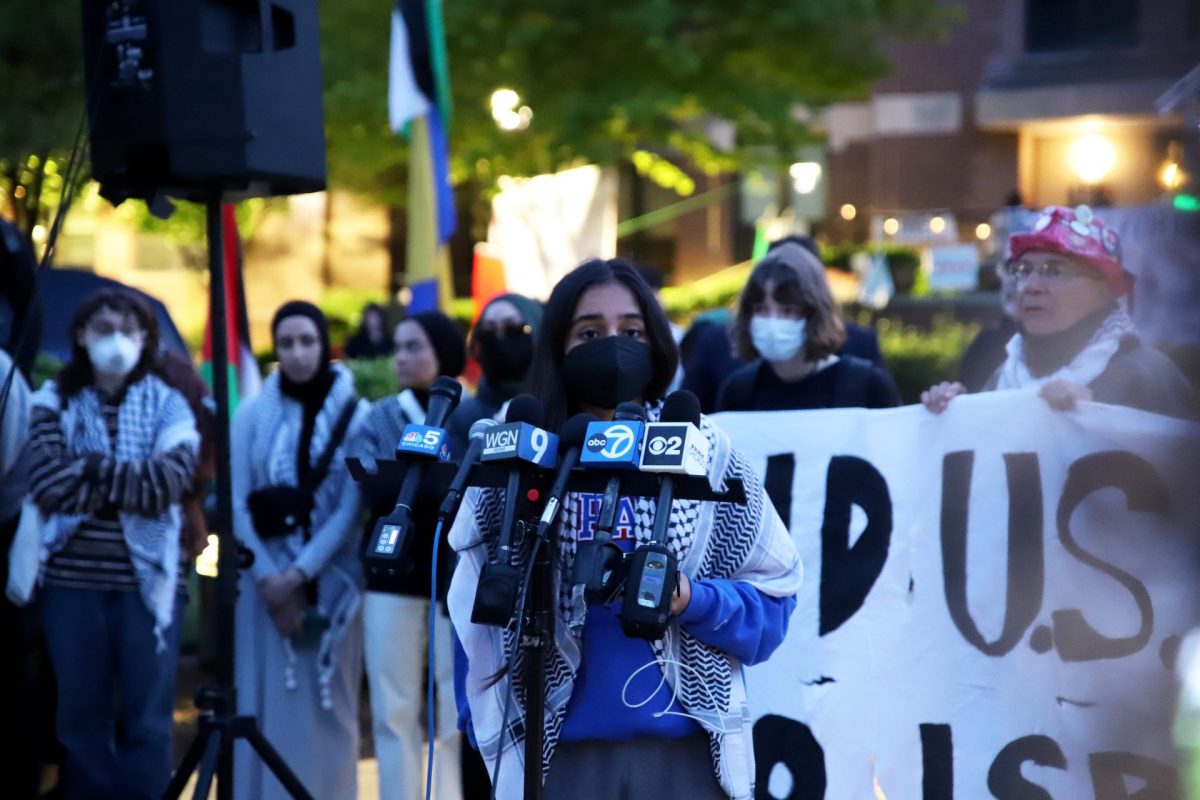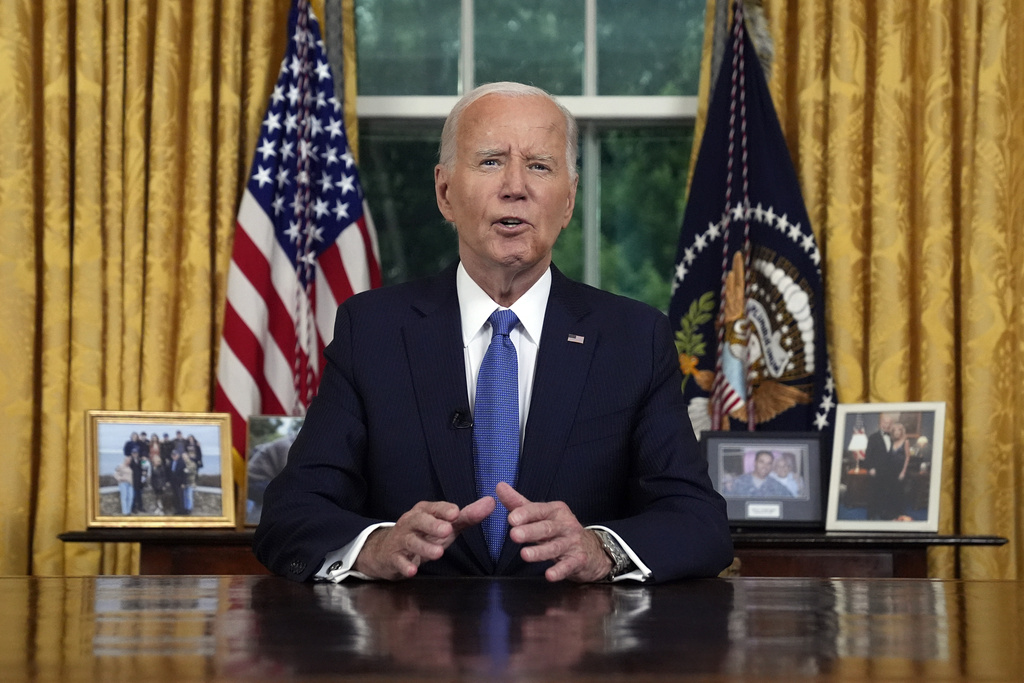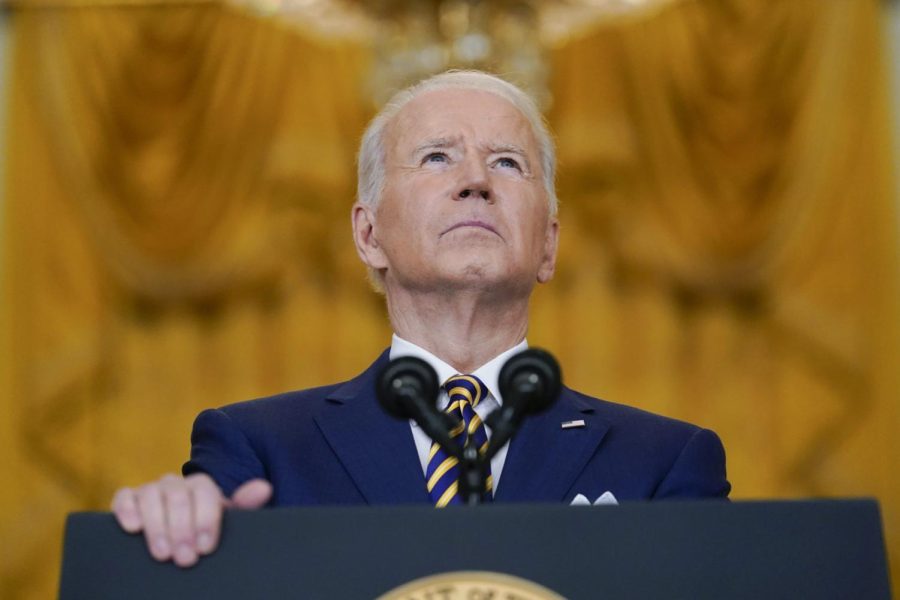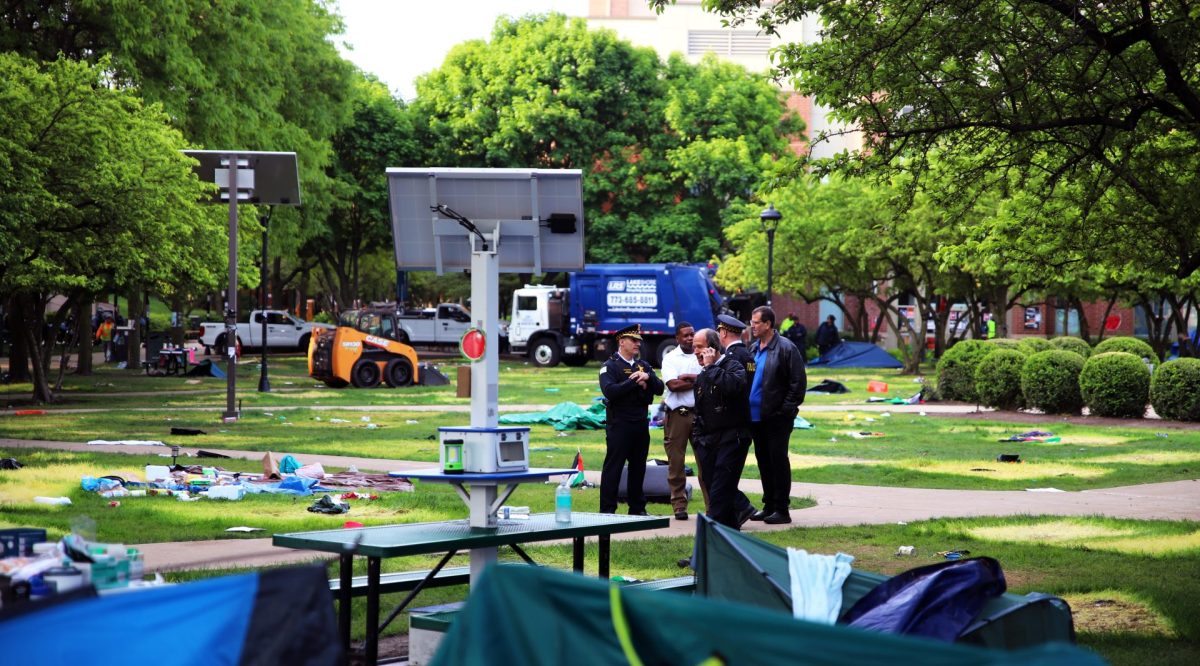The chair of DePaul’s Board of Trustees contributed thousands of dollars to Paul Vallas, the losing candidate for Chicago mayor, and donated significant sums to Republican and Democratic candidates in Illinois and other states, according to state and federal records.
Gerald Beeson, a senior executive of Citadel, a leading U.S. hedge fund firm, has also been heavily involved with educational charity and contributions in Chicago.
Beeson, who earned his bachelor’s degree in commerce at DePaul and an MBA from the University of Chicago, has been involved with Citadel since its early days in 1993. He is now the chief operating officer of the highly profitable investment company.
Several DePaul trustees have made political contributions to Democrats and Republicans, but Beeson donated over $350,000 to political figures, far more than any other trustee. His contributions have spanned mayoral, congressional and most recently, state’s attorney elections.
With primary elections approaching, Beeson contributed $6,900 to Democratic Candidate Eileen O’Neill Burke’s campaign for Cook County State’s Attorney Dec. 29, 2023. O’Neill Burke has positioned herself as a “tough-on-crime” candidate, planning to reverse Kim Foxx’s current policy on prosecuting retail theft as a felony. Foxx has only prosecuted if the stolen goods’ value is over $1,000; O’Neill Burke, if elected, plans to reduce the value amount to $300.
During Chicago’s recent mayoral election, Beeson donated $300,000 to Vallas’ losing mayoral campaign, according to the Illinois State Board of Elections. The first $100,000 donation to Vallas’ campaign occurred Nov. 23, 2022, followed by another Jan. 23, 2023 and the third March 6, 2023.
In a written statement, a spokesperson for Beeson stressed that the Citadel executive’s main concern was public safety, including rising rates of crime in Chicago: “Gerald was born in Chicago, has raised his family in the area, and continues to be an actively engaged civic leader. He cares deeply about every student, irrespective of their personal circumstances, having the opportunity to receive a great education and ensuring that Chicagoans can live and work in safe neighborhoods. Gerald firmly believed that Paul Vallas’s plan to tackle the unconscionable crime and violence plaguing Chicago would have improved the lives of all residents.”
Beeson was able to contribute such large amounts to Vallas because of a loophole in Illinois known as the “trigger law,” which removes limits or “caps” on political contributions once a candidate or political committee spends $100,000 in local races or $250,000 in statewide elections.
Though the Illinois trigger law makes large campaign contributions possible, most other states don’t allow them because of their potential to disproportionately influence politics, according to Alisa Kaplan, the executive director of Reform For Illinois, a non-partisan watchdog group.
“In most places, you wouldn’t be able to give such a large, direct contribution to a mayoral – or any candidate,” Kaplan said. “This is a quirk of the Illinois system, because you can bust the caps, and as much money as you want can flow in.”
Data gathered by Illinois Sunshine, a contribution tracking database run by the nonprofit organization Reform For Illinois, indicates that Beeson was among the top 11 donors to the Vallas For Mayor campaign.
During the mayoral campaign, Vallas met with Citadel employees at the company’s Chicago office to discuss concerns about crime in the city, according to a company official.
Jimm Dispensa, the field data manager for Vallas’ campaign, confirmed that public safety seemed a significant issue for large donors like Beeson.
Under the previous administration, corporate leaders, including Beeson’s boss at Citadel, CEO Ken Griffin, voiced concerns over crime in Chicago. In June 2022, Griffin announced that Citadel would move its headquarters from Chicago to Miami, partially due to concerns about violent crime. Griffin also backed Vallas for mayor.
In a statement, Citadel claimed that some of its employees were victims of crime, citing that some colleagues had been “mugged at gunpoint.”
In 2023, violent crimes in Chicago, including robberies, rose to the highest level the city has seen since 2011, according to a CBS News analysis.
DePaul has implemented several additional safety measures to keep students safe on campus, including requiring students to scan their DePaul ID when going into campus buildings and an increased presence of security guards. On Monday, Feb. 26, 2024, a student was robbed on DePaul’s Loop campus while waiting for a bus, according to a DePaul Public Safety Alert.
Alongside public safety concerns, education was another platform issue that set Vallas and Mayor Brandon Johnson apart.
Beeson has strong connections with Chicago Catholic schools. Beeson and his wife Jennifer are members of the Big Shoulders Fund Board of Directors and make charitable donations to five Catholic schools across Chicago. Through the fund, Beeson and his wife have established the Beeson Scholarship program, which provides financial support to inner-city students in Chicago.
Vallas supported “education choice,” meaning that a student’s zip code shouldn’t dictate which school they attend. Vallas’ educational agenda also proposed increasing the number of work-study programs in Chicago high schools.
“This was, I think, quite appealing to not just folks who care about education but also to business leaders,” Dispensa, the field data manager for Vallas’ campaign said.
Johnson, a former teacher and Chicago Teacher’s Union organizer emphasized stronger public education during the campaign. While Beeson and other Citadel executives contributed heavily to Vallas, Johnson’s campaign took in more than $2.6 million from the political action committee for the Chicago Teachers Union.
The mayoral candidates also differed on financial and tax issues, according to Dispensa.
“(Vallas’) view on taxes and government expenditure was attractive to a whole group of corporate folks and financial service companies and high-net-worth individuals,” Dispensa said. “Vallas for Chicago, the entire platform was a repudiation of many different taxes and fees that his opponent’s campaign was in support of.”
Beeson made no public statements on tax policy during the mayoral campaign, according to his spokesman.
Contributors have multiple reasons for donating, which can be hard to pinpoint, according to Kaplan, executive director of Reform For Illinois.
“Most people have mixed motives, (Beeson) could have sincerely thought the Johnson administration would be bad for business, bad for Chicago,” Kaplan said. “You could make an argument that things that are bad for business are bad for Chicago. Chicago depends on businesses to thrive economically. So (Beeson) might have thought then that would be bad for DePaul.”
Kaplan’s work at Reform For Illinois involves fighting systemic corruption and reforming campaign finance.
Rick Pearson, a veteran political reporter for the Chicago Tribune, also suspected Brandon Johnson’s proposed tax policies, including a new tax on financial industry transactions, could have encouraged Beeson and other Citadel executives to contribute to Vallas.
“I think (Citadel) had more fear of what an untested progressive Democratic mayor would do,” Pearson said.
“(Vallas’) view on taxes and government expenditure was attractive to a whole group of corporate folks and financial service companies and high-net-worth individuals,” Dispensa said.
— Jimm Dispensa, Vallas campaign field data manager
In addition to supporting Vallas for mayor, Beeson also made substantial contributions to many Republican candidates across the country according to federal election records.
On Nov. 17, 2023, Beeson donated two $3,300 contributions to Mike Rogers, who is running for Senate in Michigan. Rogers, a Republican, recently endorsed former President Donald Trump in the GOP primary election.
During the 2020 campaign, Beeson spent heavily in a losing effort to help Republicans keep control of the U.S. Senate, including a $35,500 contribution to the National Republican Senatorial Committee and donations exceeding $120,000 to a political action committee supporting Georgia Republican Sens.s Kelly Loeffler and David Perdue. Beeson also made maximum individual contributions of $2800 to Loeffler and Perdue. Both incumbents were defeated in races that tipped the Senate to Democrats.
Federal election records show Beeson did not financially support any candidates for president in 2020, nor has he in the 2024 election, as of Feb. 24, 2024. In 2007, Beeson did contribute $2,300 to the presidential campaign of Democrat Barack Obama, records show. But he also donated to Obama’s Republican opponent, Sen. John McCain, in 2008.
Griffin, CEO of Citadel who, according to Forbes has a net worth of $35 billion, also made major contributions to losing Republican political opponents of Illinois Gov. J.B. Pritzker and a successful effort to defeat Pritzker’s proposed income tax reform.
Regarding the impact that Beeson’s contributions could have on Depaul University, Pearson explained that due to Johnson’s educational background, he would “probably recognize what DePaul University does for Chicago,” despite Beeson’s contributions to the losing candidate.
While Pearson suggested that Beeson’s contributions are more so aligned with the interests of Citadel, his contributions also reflect on DePaul.
“When you’re in this position of being on a Board of Trustees of these institutions, your actions are also representing the institution,” Pearson said.


